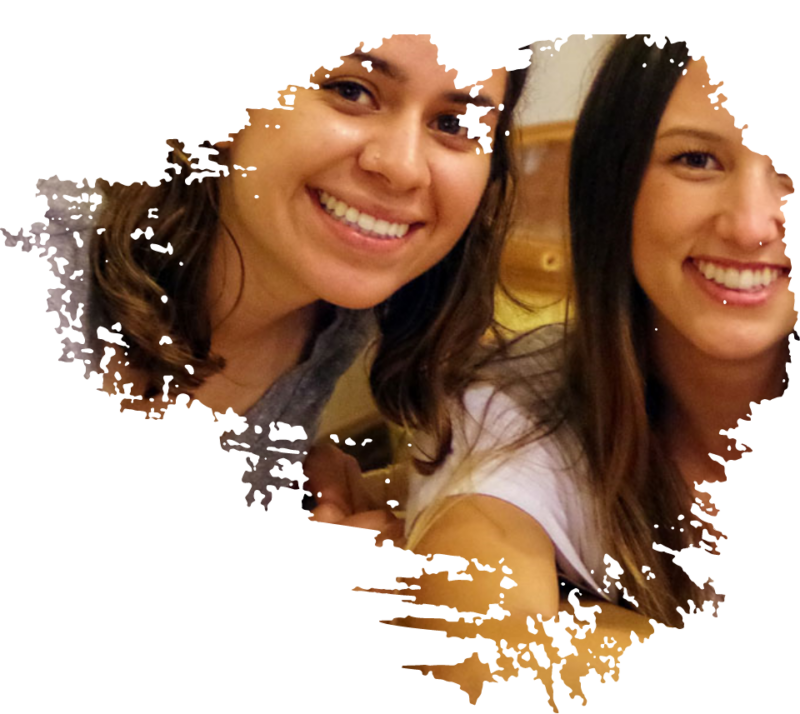
Therapy Abroad provided me with a once and a life time experience to not only travel the world but provide meaningful therapy to individuals who otherwise could not afford or access services.
This unique opportunity provided me with skills that can not be taught in a typical placement or classroom. Working in Belize required quick creative thinking, dynamic assessment, and thoughtful recommendations that were appropriate for the people we worked with. With limited WiFi access and materials, students were asked to get creative and utilize objects, screeners, and materials in new ways to obtain information (e.g., using an articulation picture screener as a tool to assess “wh”-questions). I also evaluated a range of disorders, syndromes, and deficits that I may not have worked with here in the US.
Some staff were wonderful to work with. Ellen was a great resource during our time in Monkey Bay. She was delightful, knowledgeable, and eager to help in any way she could. She made us feel safe and made my experience at Monkey Bay memorable. Tyrone was also a great wealth of knowledge and a great person to have around for the trip. We wished he could have been our driver for the entire trip.
It was a pleasure working with the community health workers (CHWs) and their work/experience in Belize. They were great translators when we needed them to act as such. One CHW said that she was learning a lot from us as we were learning from her. She came everyday happy and excited to work.
I had an amazing trip that was fun, educational, and at some points emotional. Home visits were the most emotionally taxing and most rewarding. Providing families with strategies and ways to support their children or loved ones was such an empowering experience.
I highly recommend this trip for students who want hands on experience, challenging clients/environments, and want to be a better report writer (because you write a lot of reports and you need to be through for the next clinician; no detail is too small or unimportant!).
What would you improve about this program?
There are several things I believe can be improved about the program. While in Belize, we were never such of exactly what we were walking into in terms of expectations (e.g., providing services or just providing education and support to Belize staff) or client disorders/deficits. This provided a great learning experience and is often unavoidable, however, the following suggestions for improvement are provided:
1) Providing a list of potential names and documentation previously submitted to Therapy Abroad (e.g., Evaluation reports and SOAP notes) a week prior to group arrival in Belize. As per parent report, several of the children I evaluated had already been seen by Therapy Abroad on separate occasions, however, I was not provided with other team’s reports. It is unnecessary to preform evaluations on individuals who were already identified by Therapy Abroad has having a delay or disorder by other SLPs. My services would have been better utilized by providing these individuals with the treatment they need and dynamic assessment.
2) Client Intake forms. For some school districts or community placements, providing a client intake form might reduce the amount of referrals for non-speech/language concerns and give students an idea of what to assess for the children referred. This would also serve as a document to alert communities of our arrival. There was an instance where a school district was not aware we were coming and felt that the school procedures were being overlooked. Eden was present for this conversation with administrative staff, and the principle required that any documentation be pass on to the school so the relationship was mutually beneficial.
3) Documentation and Materials. Often, the Belize supervisory staff was unsure of the work expectations required of us at a placement. For example, if we were observing or treating individuals at a nursing home. We were directed to leave all therapy and evaluation materials at the hotel because either the expectation was uncertain and/or the placement had materials for us to use. Upon arriving to a placement, it was apparent that having our materials accessible would have been better than having nothing at all. In my personal opinion it is better to be over-prepared than under-prepared regardless of placement. Students should not be instructed to leave materials at the hotel but rather encouraged to bring them in the event they are able to conduct therapy/evaluations. The exception to this was the hospital visit with Ryan which was strictly just a tour of the facility and a learning experience for students.
4) Language used with students. During orientation and several times throughout the week at dinner time the language regarding adult beverages was infantilized. Although the program is considered to be a dry program, my group consisted of graduate students who were 24, 25, and 26 years old and can make appropriate decisions regarding drinking outside of the program. Students and supervisors (both from the college and the therapy abroad program) enjoyed a drink at dinner and reiteration of the policy of drinking was unnecessary at each dinner meal, orientation to the program was sufficient. Furthermore, there were inappropriate comments made by Belize supervising staff regarding religious affiliation of students. My college is not affiliated with any religion and a comment about the assumption that we would act as “good christian girls”. This comment was not only unnecessary and inappropriate, it was offensive to those who do not practice Christianity.
5) Provide a translator that speaks Mayan. It’s hard to do a speech-language evaluation on a child that only speaks Mayan and no translator. It’s unethical on our end.
6) Provide an FM system for Belize staff. On the bus or on tours it was difficult to hear information that was provided by Belize supervisors, tour guides, and bus drivers about the history, culture, and additional information about Belize while traveling.